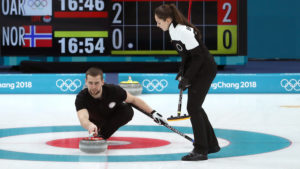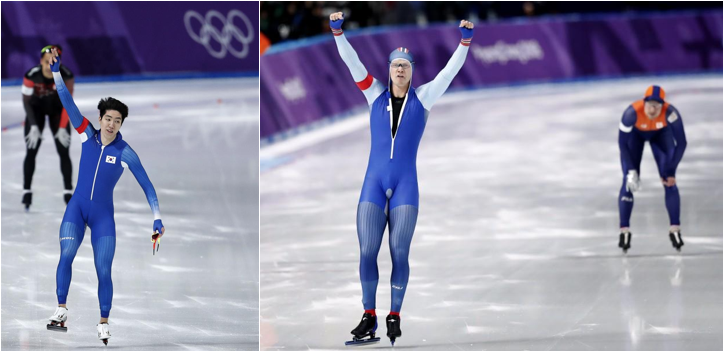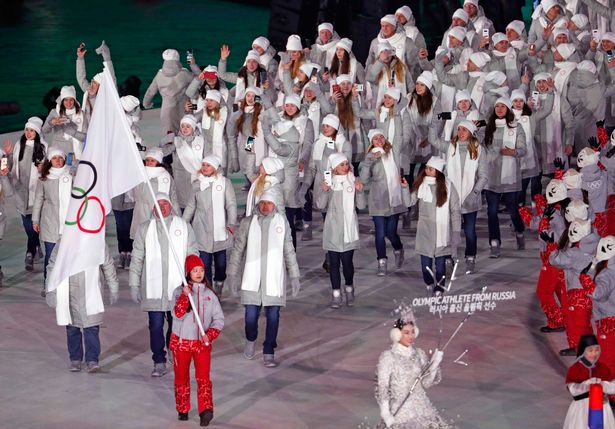Men’s Speedskating 500 (Long Track)
Norway is dominating skiing events at these Games much as the Netherlands is dominating skating events. Therefore, it looked like a scene from The Good, the Bad, and the Ugly when one Norwegian took on three Dutchmen and … iced them.
Okay, for a more athletic analogy, this is rather like one Ethiopian taking on three Jamaicans (in the Men’s 100m at the Summer Olympics) and burning them.
But, in fairness to the skating Dutchmen, the Norwegians are dominating these Games in ways that smack of divine providence. There’s no greater testament to that than this:
After Cha had broken the Olympic record in a blistering lap, the ice-cool Lorentzen went 0.01 seconds faster.
(Reuters, February 19, 2018)
It was miraculous enough that this Norwegian won by such a razor-thin margin. But, in doing so, he made the Dutchmen look lame and the South Koreans look unlucky … on home ice.
It speaks volumes that one could hear a pin drop in that skating arena after Lorentzen crossed the finish line with the winning time. And it’s debatable whether Dutch fans or South Koreans fans were the more dumbstruck.
- Havard Lorentzen of Norway won gold; Cha Min Kyu of South Korea, silver; and Gao Tingyu of China, bronze.
The favored Dutchmen ended up 7th, 9th, and 10th. The sentimental South Koreans, 2nd, 12th, and 16th.
Incidentally, Lorentzen rationalized his improbable win by saying that it’s not good for his sport for the Dutch to be too dominant. The irony seemed lost on him that Dario Cologna of Switzerland, who managed a rare win in Cross-Country Skiing, could say the same about Norway and his sport.
Sochi and Doping Russians
We’ve just crossed the halfway point in PyeongChang. And to date, medals have been awarded in eight Cross-Country Skiing events. Norway has won gold in five, including one sweep. Medals have been awarded in nine Speedskating events. The Netherlands has won gold in six, including one sweep.
For a little context, Russia won the final medal count in Sochi with 29, including 11 gold; to date, “Olympic Athletes from Russia” are languishing in 20th with 11, none of them gold. The United States finished second in Sochi with 28, including 9 gold; it is languishing in 5th with 10, including 5 gold. Host country South Korea is making a good showing with 7, including 3 gold. And, thanks almost entirely to their speedskaters, the Netherlands is in 4th with 13, including 6 gold.
That said, the IOC has banned Russian athletes from participating under their national flag at these Games. This, it would have you believe, is the harsh way it’s penalizing Russia for operating a state-sponsored doping program.
But this is a farce. I have often argued that the fairest penalty would be to ban Russia from hosting any international sporting event. But Russian athletes seem such willing dopers that it might be fairer to ban them. As it happens, I hailed what I thought was its intent to do just that in “IOC Ban Shows USA How to Deal with ‘Systematically’ Corrupt Russia,” December 6, 2017. Alas, its bark turned out to be far worse than its bite.
 But nothing vindicates my zero-tolerance approach quite like this:
But nothing vindicates my zero-tolerance approach quite like this:
‘It’s a catastrophe,’ she said. Moiseeva, the skip, or head curler, of the Russian women’s team was referring to the possible effects of a failed doping test by a fellow Russian curler here at the 2018 Winter Olympics.
(New York Times, February 19, 2018)
Clearly, no evidence can be more damning of the systemic, endemic and unreformed nature of doping in Russia than a Russian curler testing positive for performance-enhancing drugs.
I rest my case.
MEDAL COUNT: Norway 28; Germany 20; and Canada 17

